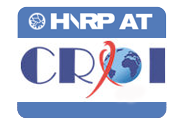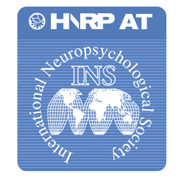HNRP Presentations at NAN 2013
Researchers representing the work of multiple studies (HNRC/TMARC/CNTN) within the HIV Neurobehavioral Research Program present at the 33rd Annual Conference of the National Academy of Neuropsychology in San Diego, California on October 16-19, 2013. Presentations include research on prospective memory, cognitive reserve, predictors of functional impairment and death, and health literacy among individuals impacted by HIV, HCV and/or methamphetamine.
Increased Risk of Neurological, Cognitive Deficits in Youth with HIV
UCSD professor and HNRP investigator Dr. Steven Woods co-authored a paper recently published in the Journal of Adolescent Health reporting the incidence of neurocognitive deficits in youth infected with human immunodeficiency virus (HIV) who were not receiving antiretroviral (ARV) treatment. The findings highlight that over two thirds of youth with behaviorally acquired HIV evidence neurocognitive deficits. Previous studies have shown that cognitive deficits are common in older HIV infected individuals, but this is the first time cognitive deficits have specifically been associated with HIV infection in youth.
Physical Exercise is Associated with Less Cognitive Impairment
HNRP researchers Catherine Dufour and David Moore published findings in the Journal of NeuroVirology that physical exercise is associated with significantly less cognitive impairment in HIV-infected adults. Exercise seems to be good for one's mental health in addition to one's physical health. If future longitudinal studies show that exercise can prevent or reverse cognitive decline this could be a practical intervention freely available to most individuals.
UC San Diego Ranked the 20th Best in the World
UC San Diego fared well in a new global ranking of universities developed by the Center for the World University Rankings that evaluates education quality, student training, faculty prestige and the quality of research.
Click Here to read the UC San Diego News Center article.
Erica Weber Wins the 2013 APF Benton-Meier Scholarship
 Erica Weber has been awarded the highly competitive 2013 American Psychological Foundation Benton-Meier Scholarship, which aims to "encourage and enhance the development of talented students in neuropsychology." She was competing against the cream of the crop from the nation's top programs.
Erica Weber has been awarded the highly competitive 2013 American Psychological Foundation Benton-Meier Scholarship, which aims to "encourage and enhance the development of talented students in neuropsychology." She was competing against the cream of the crop from the nation's top programs.
Erica is currently in her fifth year of the SDSU/UCSD Joint Doctoral Program in Clinical Psychology (NeuroPsychology track), studying under the mentorship of Dr. Steven Paul Woods at the HNRP.






